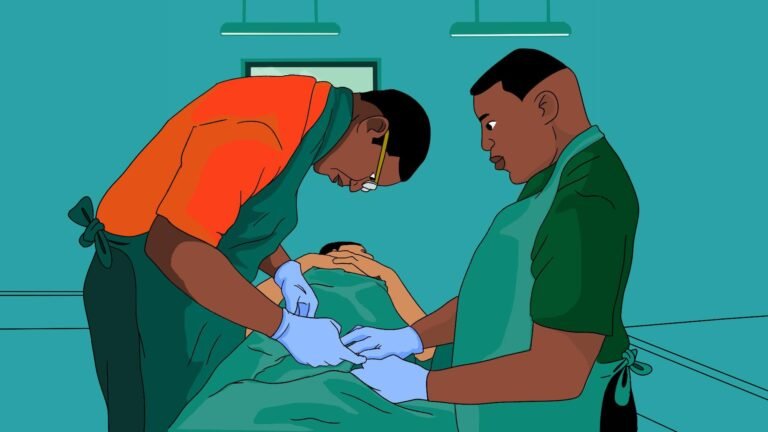
Infertility
What is infertility?
A diagnosis of infertility means you haven’t been able to get pregnant after a year of regular unprotected sex (at least 3 times a week). If you’re a woman over 35, it means you haven’t been able to get pregnant after 6 months of trying. Women who are able to conceive but not carry a pregnancy to term may also be diagnosed with infertility. A woman who’s never been able to get pregnant will be diagnosed with primary infertility. A woman who’s had at least one successful pregnancy in the past will be diagnosed with secondary infertility.
What are some misconceptions about infertility?
Infertility isn’t just a woman’s problem. Men can be infertile too. In fact, men and women are equally likely to have fertility problems.
A man who has had children with other partners can still be the source of infertility in a couple. Remember age and medical conditions all have an effect of fertility outcomes.
What are the causes and risk factors of male infertility?
Generally speaking, infertility in men is related to issues with the following:
- Effective production of sperm
- Sperm count, or the number of sperm
- Shape of the sperm
- Movement of the sperm, which includes both the wiggling motion of the sperm themselves and the transport of the sperm through the tubes of the male reproductive system
There are a variety of risk factors, medical conditions, and medications that can also affect fertility. Risk factors associated with infertility in men include, but aren’t limited to:
- Older age
- Smoking cigarettes
- Heavy use of alcohol
- Being overweight or obese
- Exposure to toxins, such as pesticides, herbicides, and heavy metals
- Wearing of tight boxers
- Using heavy machinery
Medical conditions
Some examples of medical conditions that can cause male infertility include:
- Retrograde ejaculation
- Varicocele, or the swelling of the veins around the testicles
- Testicles that haven’t descended into the scrotum
- Having antibodies that attack your sperm and destroy them
- A hormonal imbalance, such as low testosterone production
Medications and drugs
Various medications and drugs can also affect male fertility, such as:
- Chemotherapy or radiation therapy, which are used for cancer
- Sulfasalazine, which is used for rheumatoid arthritis (RA) or ulcerative colitis (UC)
- Calcium channel blockers, which are used for high blood pressure
- Tricyclic antidepressants
- Anabolic steroids, which are used for improved athletic performance or hormonal issues such as delayed puberty
- Recreational drugs such as marijuana and cocaine
Any of these things, or even a combination of them, could lead to infertility in men. Learn about the signs of male infertility.
What are the causes and risk factors of female infertility?
Female infertility can be caused by a variety of factors that affect or interfere with the following biological processes:
- Ovulation, when the mature egg is released from the ovary
- Fertilization, which occurs when sperm meets the egg in the fallopian tube after traveling through the cervix and uterus
- Implantation, which occurs when a fertilized egg attaches to the lining of the uterus where it can then grow and develop into a baby
Risk factors
Risk factors for female infertility include:
- Increasing age
- Smoking cigarettes
- Heavy use of alcohol
- Being overweight, obese, or significantly underweight
- Having certain sexually transmitted infections (STIs) that can damage the reproductive system
Medical conditions
A variety of medical conditions can affect the female reproductive system and cause infertility in women. Examples include:
- Ovulation disorders, which can be caused by polycystic ovary syndrome (PCOS) or hormonal imbalances
- Pelvic inflammatory disease (PID)
- Endometriosis
- Uterine fibroids
- Premature ovarian failure
- Scarring from a previous surgery
Medications and drugs
Certain medications and drugs that can affect female infertility include:
- Chemotherapy or radiation therapy
- Long-term use of high-dosage nonsteroidal anti-inflammatory drugs (NSAIDS) such as aspirin and ibuprofen
- Antipsychotic medications
- Recreational drugs such as marijuana and cocaine
Are there tests for infertility?
Men
Men should plan to see a doctor after one year of trying to conceive or if any of the following apply:
- Erectile dysfunction (ED)
- Problems with ejaculation, such as delayed ejaculation or retrograde ejaculation
- Low sex drive
- Pain or swelling in the genital area
- Having undergone a previous surgery in the genital area
A semen analysis will likely then be performed. Your doctor will ask you to provide a sample of semen. This sample will then be checked in a laboratory to see how many sperm are present and whether the sperm are shaped normally and moving properly. Depending on the results of your initial exam and semen analysis, your doctor may want to perform additional tests. These tests may include: hormone testing, genital ultrasound and genetic testing.
Women
A woman’s fertility begins to decrease following age 30. Women under 35 should visit a doctor after one year of trying to get pregnant while women 35 and over should visit a doctor after 6 months of trying. The doctor will first take your medical history. They’ll ask about the current state of your health, your sexual history, your menstrual cycle and any conditions or illnesses that could contribute to infertility. Then they’ll perform an examination of your pelvic area to check for abnormalities such as fibroids or conditions such as endometriosis or PID. An ultrasound may also be used to examine the ovaries and uterus.
Other common tests for women include:
- Hysterosalpingography, which is a type of X-ray used to evaluate the fallopian tubes and uterus
- Laparoscopy, which uses a camera to examine the internal organs
- Ovarian reserve testing, which uses a combination of hormone tests to determine a woman’s potential for conceiving — relevant tests include the follicle-stimulating hormone (FSH) test
What are the Infertility treatments?
If you and your partner have been trying to get pregnant and haven’t been able to, you may wish to seek treatment. The type of treatment that’s recommended can depend on a variety of factors, including:
- The cause of infertility, if known
- How long you’ve been trying to conceive
- Your ages
- The overall health of both you and your partner
- The personal preferences of you and your partner, following consultation about your treatment options including adoption.
Men
Male infertility can be treated in a variety of ways, depending on the cause. Treatment options for men can include surgery, medication, and assisted reproductive technology (ART). Surgery can fix obstructions that are preventing sperm from being present in the ejaculate. It can also correct conditions such as varicocele. In some cases, sperm can be retrieved directly from the testicles after which it can be used in ART treatments. Medications can be used to treat issues such as hormonal imbalances. They can also be used to treat other conditions that can affect male fertility, such as ED or infections that affect sperm count.
ART refers to treatments in which eggs and sperm are handled outside of the body. It can include treatments such as in vitro fertilization (IVF) and intracytoplasmic sperm injection. Sperm for ART treatments can be received from ejaculate, extraction from the testicles, or a donor.
Women
The treatment for female infertility can also involve surgery, medication, and reproductive assistance such as ART. Sometimes several types of treatment are needed to help address female infertility. Surgery can improve fertility by:
- Correcting an abnormally shaped uterus
- Unblocking fallopian tubes
- Removing fibroids
Reproductive assistance can involve methods such as intrauterine insemination (IUI) and ART. During IUI, millions of sperm are injected into a woman’s uterus near the time of ovulation. IVF is one type of ART and involves the removal of eggs that are then fertilized with a man’s sperm in a laboratory. After fertilization, the embryo is placed back into the uterus. The medications used to treat female infertility work like hormones that are naturally present in the body to either encourage or regulate ovulation.
Being diagnosed with infertility doesn’t mean that your dreams of having a child have come to an end. It may take some time, but a number of couples who experience infertility will eventually be able to have a child. Some will do so on their own, while others will need medical assistance.






